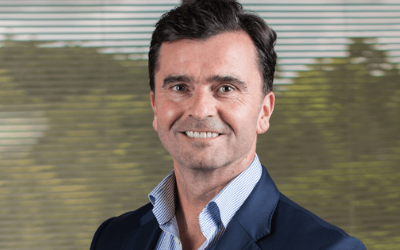Future Hospitality Summit (FHS) recently took place in Dubai. Unfortunately, we weren’t able to attend this year, but Dan Akhtar has been following events closely online.
The event was a huge success. Attendees and digital participants were encouraged to “Lead the Change” in the hospitality industry, aiming to make it more progressive, sustainable, and lucrative for the upcoming generations.
With industry giants such as Hilton, Accor, Marriott and IHG all announcing plans to significantly expand their portfolios in the Gulf at FHS, we look at what the hotel investment landscape currently looks like in three of the region’s most dynamic markets.
One of the world’s key hospitality players
“The region is going through a fascinating transformation in the hospitality sector, with over 600,000 hotel rooms in the planning and development stage. This quantum of development, which has not been seen before in the Middle East or even globally, is set to change the shape of the region’s tourism industry in the years to come and will help to further raise the region’s profile as a one of the world’s key hospitality players,” said Turab Saleem, Partner & Head of Hospitality, Tourism & Leisure – MENA at Knight Frank.
Dubai
Dubai is enjoying a very strong year both in terms of ADR and occupancy rates. The successful hosting of huge events like EXPO 2020 Dubai, which recorded 24 million attendees during its 6 months of opening, proved that Dubai is a world leader in hosting mega events. Its hospitality industry has enjoyed exponential growth building on this reputation.
With 65,000 hotel rooms under development in Dubai, tourism contribution is set to reach 15% of GDP by 2030, with an international average of 9%.
While UAE failed to qualify for the FIFA World Cup being hosted in Qatar, Dubai is set to reap huge benefits, being just a one hour flight from Doha.
Its generous supply of accommodation and a more permissive environment towards clothing and alcohol, availability may mark it out as a preferred option for many football fans over staying in Qatar.
Qatar
Qatar will take centre stage when the FIFA World Cup kicks off in November and this will be a once in a lifetime opportunity to highlight its travel and tourism industry. Qatar has been reported to have spent upwards of USD20 Billion on the event, with more than 100 hotels due to open in time for the visitors flocking in.
Already graced with a grand selection of luxury hotels, Doha is set for a bumper few months but attendees do have alternative accommodation options in neighbouring Dubai, if the inflated ADRs of Doha’s hotels prove too much.
As part of the legacy project, Qatar promises to turn football stadia into huge event spaces for concerts and events and has invested heavily in Qatar Airways in recent years. With average rates likely to drop due to oversupply after the World Cup, it may become an attractive alternative to Dubai for tourists.
The Kingdom of Saudi Arabia
The Kingdom of Saudi Arabia has one of the most ambitious projects in the region as part of Vision 2030.
The Kingdom’s plan is to build a more diverse and sustainable economy, while becoming an international economic hub to connect Europe, Africa and Asia .
Last year, Saudi Arabia’s Tourism Development Fund (TDF) also announced it was setting up a USD400 billion hospitality investment fund. This will be in collaboration with the UK-based global hospitality developer Ennismore and Al Rajhi Capital, a homegrown asset management company. It promises to introduce Ennismore’s brands (which include The Hoxton, Mondrian, TRIBE and Gleneagles) to 12 destinations in the kingdom.
The Future Hospitality Summit also proved to be a very successful week for Marriott, IHG and Accor as they all announced that they are expanding their portfolios in Saudi Arabia. Marriott announced six luxury brands (including St Regis, Edition and Ritz Carlton), two select service branded properties alongside a total of 20 properties in the Gulf region, will open by the end of 2023. IHG announced the management contract signing for Hotel Indigo Jeddah and Accor revealed that they will open a Novotel Living, a serviced apartment development, in 2026.
HPG Advisory Services
We have exceptional industry relationships and proven successes with operators, developers and investors in the hotel, and hospitality sectors across the Middle East, Europe, Africa, Asia and the Caribbean.
Our services include executive search, human capital architecture, talent management consultancy, behavioural profiling and a range of human capital services tailored to meet the specific challenges of each of our clients.
We are proud to have delivered some of the industry’s most talented leaders into key appointments. If you’re looking to build, strengthen or diversify a role, a team or your entire business, please contact us today.
Dan Akhtar, Managing Director of HPG Advisory Services +44 20 8600 1166 / +44 7808 157796 / dan@hpgsearch.com









